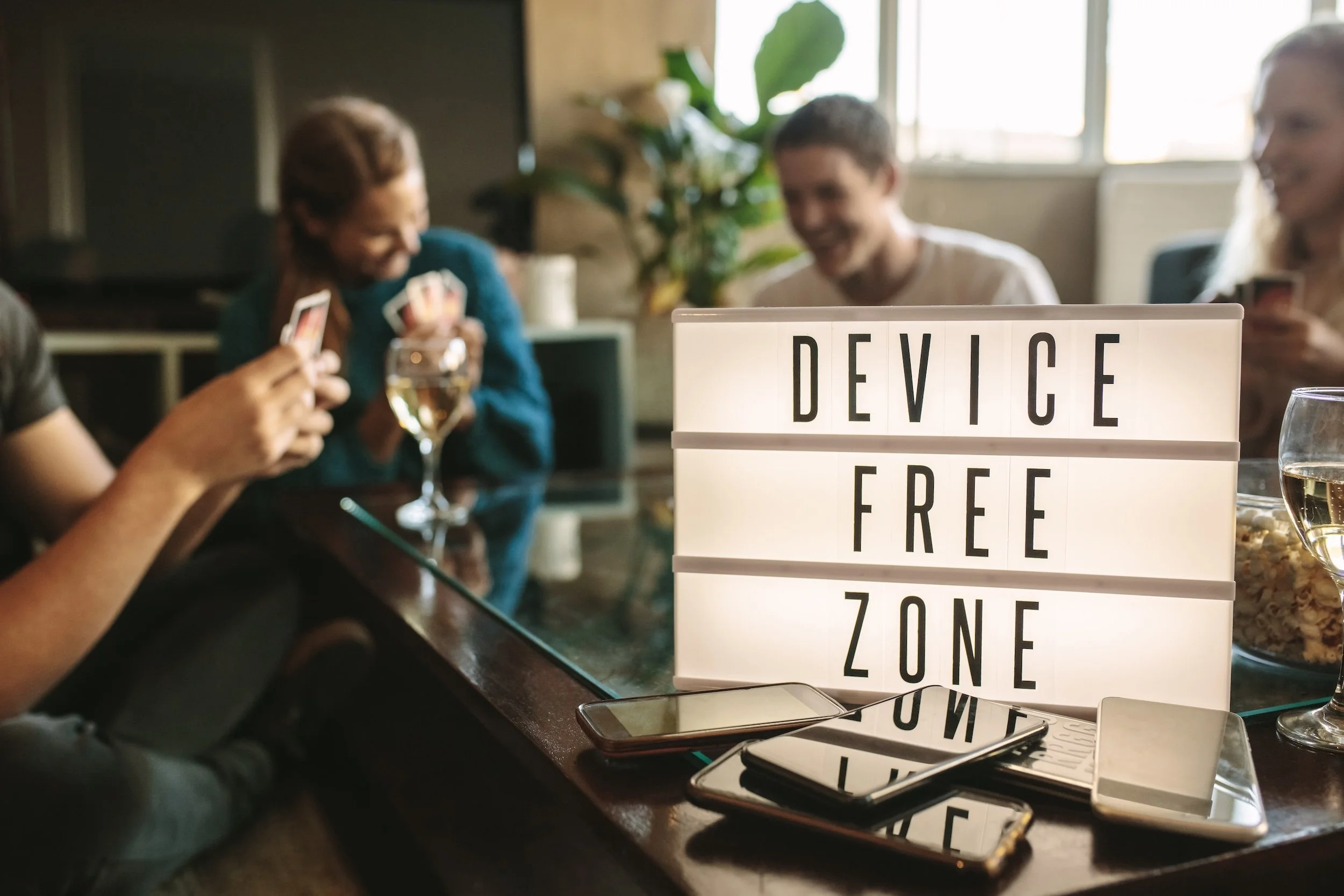
Communication is a great thing. Until it’s not. Like anything that floods our systems with a dopamine rush, we can become addicted to our own cell phone use. And for many of us who are dependent on their smartphones, the habit can be tough to kick.
A recent study shows that people check their smartphones an average of 58 times per day. Let that statistic settle in for a moment. The average person will spend 8.74 years of their life looking at their device too.
Even more alarming, is that half that time checking is our phones is while we’re on the clock at work. Or in the bathroom. Or in the middle of a social engagement when our attention should be on the person(s) we’re spending precious time with. Family dinners at home should be a smartphone-free-space, yet how many times have we noticed, or been guilty of, burying our noses in our phones at a restaurant? As adults, we are losing our social skills, and kids and teens are not developing them without some boundaries set in place.
Emails and texts aside, social media is a big distractor, and apps of all kinds are designed to keep us interested in them instead of the lives we are living. We’ve become dependent on smartphone notifications, and that increases our stress levels and FOMO (fear of missing out). Overusing our smartphones comes at a price to our physical and mental health. Fatigue, depression and anxiety are elevated. Sleep is disrupted because of exposure to blue light from smartphone screens, as it tricks our brains into thinking it is daytime and our natural melatonin release is delayed. Looking for an easy fix? Leave your smartphone out of the bedroom. Set a good old fashioned alarm clock (one that does not tick constantly) to wake you each morning.
Mental health is something we are talking about more comfortably now, and Statistics Canada reported that people who spend just 10 hours or less per week watching online content say they feel better because of limiting it to that. At a rate of 16 percentage points higher than folks who spent 20 hours or more, the results are significant and telling.
Active vs. passive use of our smartphones makes a difference, too. Contacting people, texting to catch up, and making plans for IRL (in real life) meetups is considered active. Passive use is scrolling without engagement, and avoidance of socializing. Hiding behind our smartphones can be tempting after a long day, but not a healthy choice in fostering our relationships. Numbing out is never a wise move on the path to our enhanced wellness.
How do you know if our smartphone use is problematic? Ask yourself these questions:
-
Do I feel lost without my phone? Need to see where it is at all times? Worried or anxious if I forget it at home?
-
Am I constantly checking my phone?
-
Do my friends or family criticize how much time I spend on it?
-
Do I ignore the notifications that tell me if my usage increased that week?
-
Is my neck and back stiff and sore from hunching to read?
-
Do I have headaches from overuse, and viewing a small screen?
Seven Tips to Digitally Detox:
-
Use the ‘turn notifications off’ or ‘do not disturb’ settings whenever possible, especially when you’re heading to bed or driving.
-
Check your apps, and make sure they are not automatically set to notify you every time something ‘they’ think is interesting to you (trust us these apps are tricky)
-
Set your emails to ‘fetch’, so they only appear when you go into your mail, not as notifications that pop up on your screen. The light flashes, or the sound pings, and it can be hard to ignore and is a constant interruption.
-
Turn your ringer off. Not only for your own health but for the sanity of those around you. No one wants to hear all your pings, beeps and whooshes, thank you.
-
Make a schedule and time limit for checking your phone. Allow yourself 15 minutes at lunch time, perhaps. Another 15 minutes in the evening. And definitely do not bring your smartphone into the bedroom with you. The excuse of needing to set the alarm on your phone is a crutch. Buy a nice, quiet alarm clock that does not tick through the night. Some alarms wake you gently with light that mimics sunrise rather than sound, too.
-
Don’t bring your phone from room to room. Put it somewhere out of sight, out of mind. And definitely no phones at the dinner table. If you can leave your smartphone at home sometimes, do it. You may feel a touch of anxiety the first time, but then that breakup with your device feels freeing.
-
Find a hobby. Seriously. Find something that will distract you from so much screen time. Put together a puzzle, try chair yoga (yes, it’s a thing), or read a book. A real book, not one on your device. May people derive quiet satisfaction from the tactile sense of turning a page.
Bottom line? Set your smartphone aside, even just for a few hours during the day. It’s good for your health and well-being.

